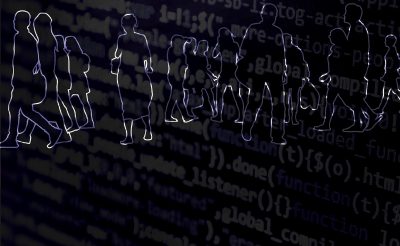The future of the digital economy

Crystal ball gazing can be fraught with danger, especially when it comes to predicting future business trends. Too often, what comes out looks like a badly sketched episode of The Jetsons, the 60s TV cartoon series set in a jetpack future.
However, based on the technological progress of the past couple of decades and the educated opinions of business leaders and technologists, we can sketch a reasonably plausible picture of the ideas that will drive and disrupt society and business activity over the next 30 years.
Three key concepts emerge when talk specifically turns to the future of the digital economy: the Internet of Things (IoT), big data and its applications, and intuitive modes of communication. Underlying these concepts will be advances in areas including nanotechnology, robotics and automation, optic computing, and neuroscience to name a few.
The way these developments interact, and how they’re adopted and adapted by entrepreneurs and consumers, will form a picture of what life might look like 20 or 30 years from now. Out of this fusion will come opportunities as fertile and rich in possibility as those we’ve seen emerge over the past 2 decades of digital innovation.
As always, the successful entrepreneurs and business leaders will be the ones who can make these technological advances work for people: to make people healthier and happier, enable them to communicate and connect, delight them, and to generally make customers’ lives richer and more fulfilled.
The internet will disappear
It seems counterintuitive for the head of the company that has become almost synonymous with the internet to say it will disappear, but Google’s Eric Schmidt said just that when he addressed an audience at the World Economic Forum in 2016. "The internet will disappear. There’ll be so many IP addresses because of IPv6, so many devices, sensors, things that you’re wearing, things that you’re interacting with, that you won’t even sense it. It will be part of your presence all the time," said Eric.

With virtual reality about to take off and the IoT continuing to grow at exponential rates, Eric’s statement points to the reality that the internet is still only in its embryonic stage. We’re seeing wearables become increasingly popular, but soon enough internet capability will be woven into the fabric of our clothes and into the fabric of our lives. There won’t be an online or offline; we’ll just almost always be ‘on’ in some way. That’s a little scary, but it presents some incredible opportunities for how we do business and transact with our customers.
Welcome to the Infosphere
The IoT will generate almost infinite amounts of data about all manner of things, from our own interactions through to the reams of data generated by industrial applications. But how do we use all that data? What’s the point of it all?
Internet capability will be woven into the fabric of our lives … There won’t be an online or an offline; we’ll just almost always be on in some way. That’s a little scary, but it presents some incredible opportunities for how we do business and transact with our customers.
Luciano Floridi is not as well known as Eric Schmidt, Bill Gates or Mark Zuckerberg, but the Oxford professor has earned the title of ‘The Google Professor’ for his work on data, information and what he calls the ‘infosphere’. Luciano sees humanity moving into a phase of evolution where how we think about information will be totally transformed by such technologies as artificial intelligence alongside the often mind-numbing capacities of ‘big data’.
Luciano views this "4th revolution" as having the potential to redefine humanity to the same extent as the discoveries of Copernicus, Darwin and Freud: "As inforgs [informational organisms], humans are transition systems in the infosphere. We are intelligent inforgs in charge of the infosphere, and this is the 4th revolution." It’s difficult to draw any concrete commercial implications from such a fundamental shift, but there’s no doubt it will present a unique set of challenges and opportunities for business.
The power of telepathy
Almost equally visionary as Luciano’s infosphere idea was Mark Zuckerberg’s statement last year that seemed to imply he thought telepathy was a distinct possibility for communications technology. At a panel event in 2016, with guests such as Stephen Hawking and Arnold Schwarzenegger, the Facebook founder told the audience: "First, people are gaining the power to share in richer and richer ways.
We used to just share in text, and now we post mainly with photos. In the future, video will be even more important than photos. After that, immersive experiences like virtual reality will become the norm. And after that, we’ll have the power to share our full sensory and emotional experience with people whenever we’d like."
Mark, still only in his early 30s, is venturing far and wide in his endeavours to grow his social network into one of the pivotal companies of the twenty-first century. His desire to take Facebook’s mission statement to connect people to as many others as possible, and go as deep as possible, points to the continuing importance that social factors such as connection and recognition will play, opening up all kinds of opportunities for leaders who can tap into these very human needs and desires.